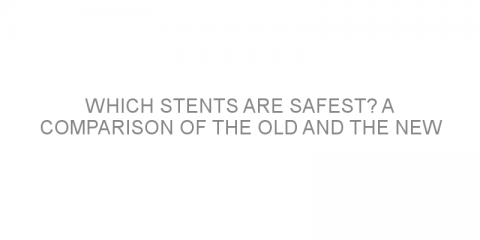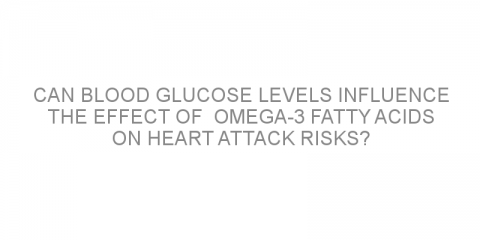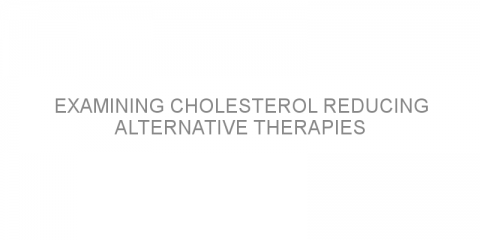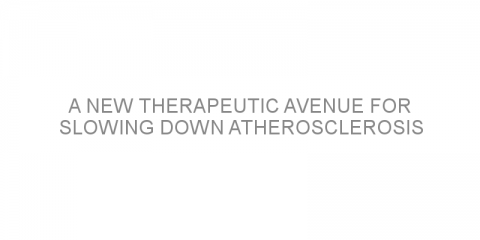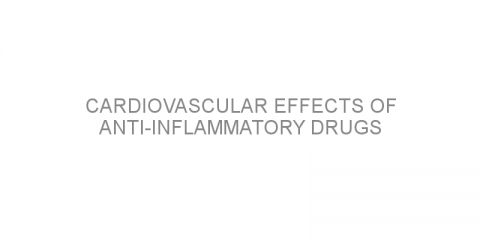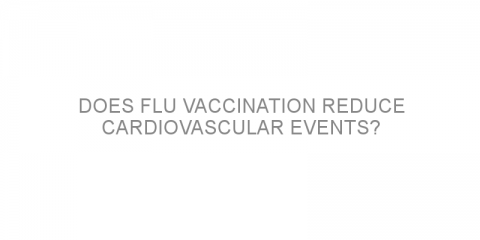In a nutshell This study compared the efficacy of bare metal stents alone to bare metal stents plus prednisone and drug-eluting stents in advanced coronary artery disease. Some background In coronary artery disease, blood vessels are blocked by the buildup of plaque, or fats from the blood stream. This is treated by a process of...
Read MoreCoronary artery disease Posts on Medivizor
Which stents are safest? A comparison of the old and the new
In a nutshell This study compared the safety and efficacy of bare-metal stents, first-generation drug-eluting stents, and newer drug-eluting stents. Some background Patients with coronary artery disease often experience a narrowing or blockage of the arteries, which can be treated by placing small tubes (stents), inside the arteries to keep them...
Read More7 Reasons Why Patients Blog
Why do patients blog? Why do they reveal personal information and medical experiences on the Internet? 1) To Share Information Annette McKinnon, author of ‘Here’s Your Gold Watch, Rheutired,’ started her blog “to inform people about things I learned that seem obvious to me now, but were hard to learn.” Carolyn Thomas, author of “My Heart...
Read MoreCan blood glucose levels influence the effect of omega-3 fatty acids on heart attack risks?
In a nutshell This study evaluated whether blood glucose (sugar) levels affect the relationship between n-3 (or omega-3) long-chain polyunsaturated fatty acids and risk of acute myocardial infarction (AMI) in patients with coronary artery disease (progressive narrowing of the arteries that supply blood and oxygen to the heart due to accumulation...
Read MoreExamining cholesterol reducing alternative therapies
In a nutshell This study examined the effectiveness of phytosterols, lifestyle modifications and red yeast rice at lowering cholesterol levels. Some background High cholesterol levels are a major risk factor for numerous cardiovascular (heart and blood vessel) diseases. Proper management over blood cholesterol is known to reduce the incidence of...
Read MoreDepression increases the risk of additional heart attacks
In a nutshell This article evaluated the association between depressive symptoms following first-time heart attacks and additional cardiovascular events. Some background Depression represents a common affliction affecting thousands of patients following diagnosis of a serious medical condition. Depression is known to seriously affect activities of...
Read MoreA new therapeutic avenue for slowing down atherosclerosis
In a nutshell This review analyzed the role of PCSK9 (protein convertase subtilisin/kexin type 9) in lipid (fat) metabolism and atherosclerosis, and therapeutic strategies targeting PCSK9. Some background PCSK9 is a protein which controls normal cholesterol uptake in the body, leading to high levels of low-density lipoprotein cholesterol...
Read MoreVitamin D, Sunshine and Health
Roll Out Those Lazy, Hazy, Crazy Days of Summer Researchers, especially epidemiologists, look for patterns. And they found patterns when they looked at the places where people are most likely to get cancer. They found that there is more cancer in people living in higher latitudes, that is, closer to the arctic. So they started thinking and figuring out this...
Read MoreCan we beat aspirin allergy?
In a nutshell The study assessed the safety and efficacy of a desensitization protocol for aspirin (acetylsalicylic acid) sensitive (allergic) patients undergoing coronary stent implantation. Some background A coronary stent is a thin tube placed in the coronary arteries that supply blood and oxygen to the heart, to keep them open, as a treatment...
Read MoreNew implications for vitamin D
In a nutshell This article evaluated the implications of vitamin D status in patients with acute myocardial infarction or AMI (heart attack). Some background Vitamin D has long been valued for its role in building strong bones. Vitamin D mediates its biological effects by binding to the vitamin D receptor (VDR). The VDR appears to be widely...
Read MoreCardiovascular effects of anti-inflammatory drugs
In a nutshell This study investigated the consequences of ongoing treatment with non-steroidal anti-inflammatory drugs in patients who had a myocardial infarction (heart attack). Some background Non-steroidal anti-inflammatory drugs such as aspirin or ibuprofen (Advil) are medications usually given to reduce inflammation...
Read MoreDoes flu vaccination reduce cardiovascular events?
In a nutshell This review assessed the effects of influenza vaccination on cardiovascular outcomes. Some background Influenza, commonly known as the “flu”, is a highly contagious respiratory infection caused by a virus that causes fever, chills, muscle pains and breathing problems. This infection can be prevented by an annual influenza...
Read More

